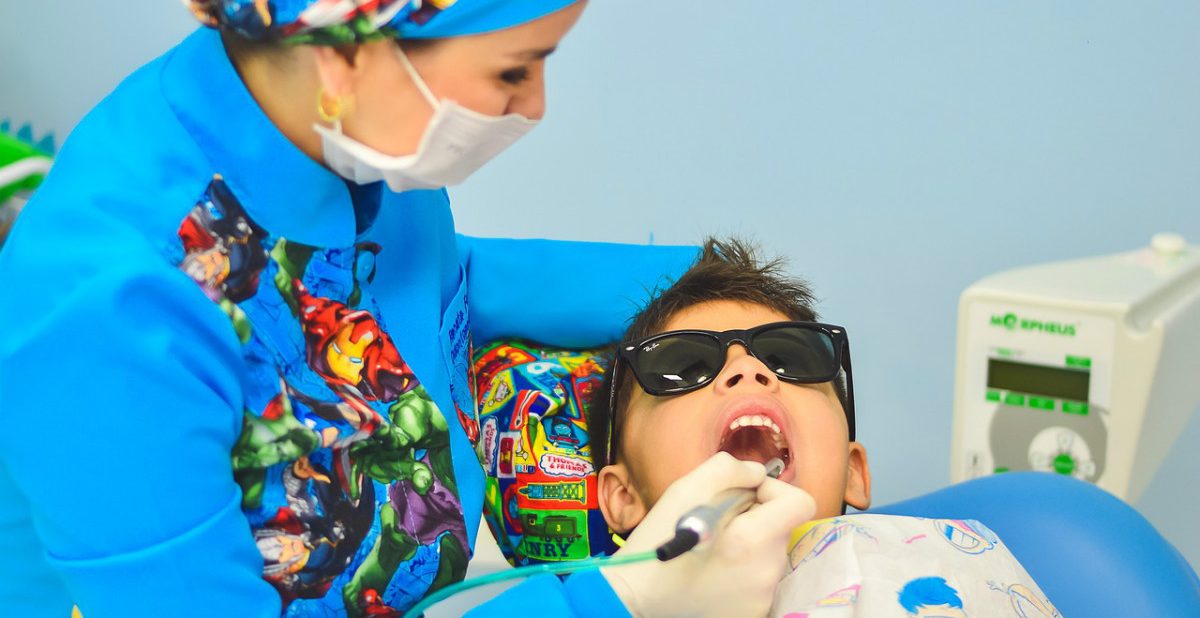
Helping kids with disabilities feel safe and secure at the dental clinic
By Julie Barker
While ensuring and maintaining good oral health for children can be challenging for parents in any circumstance, when the child has a disability this can add an extra level of complexity.
Children with disabilities or complex medical needs may require a different approach by parents, as well as by oral health professionals. Conditions that may impact oral health care include physical or intellectual disability, mental health or behavioural conditions, and other health conditions that impact how a child eats, communicates, moves or thinks.
Why some children with disabilities have a greater risk of poor oral health
Children with disabilities or complex medical needs may face challenges when it comes to maintaining good oral health. Some of the barriers to good oral health for children with specific requirements may include:
- Mobility restrictions that make oral health hygiene (i.e. brushing, flossing, etc) difficult
- Special diets which are high in decay-causing foods
- Medication that sticks to teeth and/or causes dry mouth, erosion or gum problems
- Seizures or muscle spasms that cause dental trauma or make oral health assessments and/or treatment difficult
- Increased risk of periodontal (gum) disease
- Developmental dental defects which may occur
- Tooth damage from grinding or other repetitive habits
- Delayed or early tooth eruption, missing or extra teeth
- Crowded or misaligned teeth which may affect the ability to effectively clean teeth
- Communication difficulties in expressing their
pain, discomfort or anxiety
- N.B. Anxiety may be especially prevalent in medical settings
While this list of barriers may seem overwhelming, parents can rest assured that there are many oral health professionals who have undergone specific training in how to work with patients with complex needs. It’s a good idea to have a thorough understanding of what might help or hinder your child’s experience of an oral health assessment and treatment so that you can discuss these with your oral health team before they see your child.
Tips to help kids with disabilities feel safe and secure for dental visits
Start early
- Visit a dental practitioner early on in your child’s life so that they can begin to feel safe and comfortable as soon as possible. If they have a negative experience, find another dental practitioner as soon as you can and try again.
- Try not to leave their first dental visit until they have pain or a problem, as this may mean they associate the dental visit with pain! Early visits when there are no obvious problems can alleviate stress for everyone.
- Be prepared to make a few ‘familiarisation visits’ and don’t expect too much from your child. While some kids may feel comfortable straight away, others may take a few visits to build trust with the practitioner.
Ask ALL the questions!
- Contact a few dental practices and ask if they have any practitioners with an interest or specific training in treating children with disabilities or complex medical needs. It’s also a good idea to ask your support network for recommendations.
- If you have concerns, you can ask to meet with the oral health practitioners before your child has an appointment there. This way you can talk through any strategies that might assist your child, and let the team know of any specific triggers that might impact your child.
Avoid triggers and create a positive association
- Incorporate books or social stories about visiting the dentist into your child’s daily routine. For some kids, having photos of the actual clinic you’ll be visiting, including the staff you’ll see, may be helpful in easing anxiety.
- Avoid using words that may cause unnecessary stress, such as ‘hurt’, ‘needle’, ‘drill’, ‘pain’, etc.
- Spend time at home (or in a place your child feels secure) practicing some of the things that your child may be required to do during their dental visit, such as opening their mouth wide, poking out their tongue, laying still, wearing safety glasses, showing their teeth or biting down. Make a game out of it!
On the day of the appointment
- On the day of your appointment, encourage your child to bring their favourite toy or comfort object.
- Make sure you are calm and not rushed before your appointment. Allow plenty of time to arrive so you’re not stressed about finding a carpark or being late – project a calm and relaxed energy so your child picks up on it.
- If you’re finding teeth cleaning difficult at home, ask the dental practitioner to help you work out alternate ways to protect your child’s teeth.
- If your child requires some dental treatment make sure you give yourself plenty of time to think through all the options and discuss the pros and cons with your dental practitioner, as well as your family and any other carers your child may have.
Finding a dental practitioner who understands your unique situation and who your child feels comfortable with can be the start of a fantastic partnership. As a parent, you’ll need to work closely with your oral health professional, so you need to feel comfortable following their advice and discussing issues as they may arise.
When it comes to the oral health of kids with disabilities and complex medical requirements, prevention really is the key. While it may present some challenges, being proactive about your child’s oral health will be rewarding in the long term. The sooner you can start your child on their journey towards good oral health, the less likely it is that problems will develop.
About the Author:
Julie Barker is a registered dental therapist with more than 35 years experience in the public sector in Queensland. Julie joined the Oral Health Advisory Panel to be an advocate for the vital role played by dental and oral health therapists, as well as ensuring equitable access to health care across the community, particularly for children. Julie has a passion for working with children with disabilities and the very young.
ABOUT OHAP:
The Oral Health Advisory Panel (OHAP), is a group of independent healthcare professionals with the aim of raising awareness of the importance of good oral health and its impact on general wellness. The Panel aims to take oral health beyond the dental clinic. For more information visit www.ohap.com.au. You can also follow the Oral Health Advisory Panel via twitter @OHAPanel to stay up to date with practical advice on good oral health habits.







